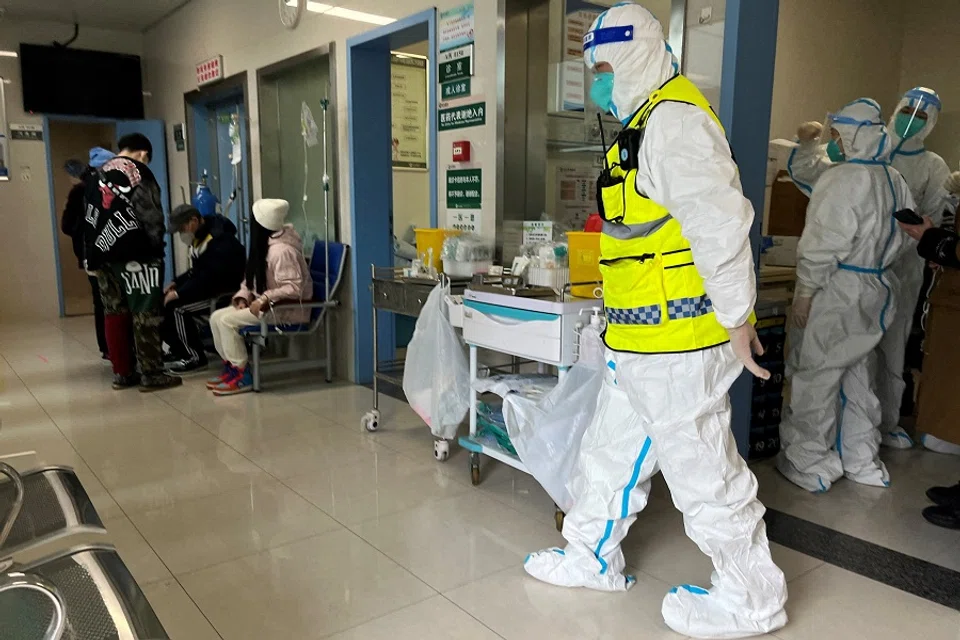Chinese doctor: Why non-compliant practices are rampant in China's hospitals
Medical researcher and doctor Hayson Wang assesses that Chinese public hospitals being run like businesses is a key reason for the widespread occurrence of corruption in the medical sector. Unless hospitals are well-funded and supported, they will continue to find it difficult to provide good public welfare and stay away from corruption.

Recently, an anti-corruption crackdown swept through China's medical sector. Since the campaign involved people's livelihoods and doctor-patient disputes have long been an issue, it immediately stirred up a commotion among the media and society.
While non-compliant practices exist in the medical sector around the world, they are especially widespread in China. These come in the form of kickbacks from drug sales in the past, to kickbacks from medical device procurements and accepting "hongbaos" (红包, monetary gifts in red packets) from patients today.
The media has also exaggerated some incidents, such as in the case of a nuclear magnetic resonance spectrometer that a hospital purchased for 30 million RMB (US$4.1 million) because its hospital director inflated the price to receive a kickback. But an exaggerated figure like a whopping 15 million RMB cannot stand up to scrutiny - apart from aggravating social tensions, such misrepresentations do nothing for the deeper discovery of truth.
...hospitals only receive a small financial subsidy from the government and would largely need to fund themselves.
Hospitals run like businesses
In reality, these medical corruption cases are mainly concentrated at the management level of local hospitals rather than among the general healthcare practitioners on the frontline. Such an excessive emphasis on the conflict between the public and general healthcare practitioners is not only detrimental to social stability but also fails to reflect the truth. Besides, emotional outbursts frequently prevent people from coming to a conclusion about the facts and underlying causes in a logical manner.
I have written about the ills of China's medical system several times on ThinkChina. The deep-rooted reason for the current anti-corruption campaign harks back to the same issue, that is, the corporate nature of China's public hospitals.

Although public hospitals are public institutions in China, they have been run like businesses since reform and opening up. Apart from personnel appointments being controlled by the government, hospitals only receive a small financial subsidy from the government and would largely need to fund themselves.
Hospitals under pressure to survive
The consequence of following a corporate management style is that firstly, hospitals are forced to run for profit to maintain their day-to-day operations and to pay the salaries of the medical and administrative staff.
This pressure in turn trickles down from the hospital management to the clinical frontline, given that the salaries of healthcare workers are determined by their clinical workload and performance. As a result, hospitals will inevitably be forced and driven to conduct more tests, perform more surgeries and prescribe more drugs.
Secondly, China is also faced with poor insurance coverage across limited types of illnesses and low reimbursement ratios under its healthcare insurance system. China's national healthcare system also does not fully subsidise the cost for all citizens, so each person has to bear a part of the financial cost.
Thus, people get very sensitive over medical fees. Both the abovementioned factors contribute to the dissatisfaction the people have towards the medical system, manifesting into discontent towards those they have direct contact with: the medical staff working in the hospitals.

The repercussions of the current anti-corruption drive are already evident. The media's exaggerated portrayal led to heightened conflict between patients and healthcare providers, in turn causing the authorities to implement cooling measures. The cut to the salaries of medical staff and the annual salary system among other measures that were implemented, or are about to be implemented, have a serious impact on the work commitment of frontline medical staff.
Should medical staff in Beijing and Shanghai earn the same annual salary as those in third- or fourth-tier cities, or should there be a difference?
Private or public hospitals?
Chinese authorities seem to have realised the negative impacts brought on by the numerous problems, and have tried to improve the situation. One example would be the medical reform in Sanming, Fujian, which adopted the annual salary system for doctors. However, the salary amount was far from industry expectations.
Implementing the annual salary system would also expose the disparity in the development of different areas in China. Should medical staff in Beijing and Shanghai earn the same annual salary as those in third- or fourth-tier cities, or should there be a difference? How should one consider the difference in cost of living in first-tier cities against third- or fourth-tier cities? Additionally, frontline workers' commitment to their jobs would certainly be negatively affected if their pay did not adequately compensate for their work or reflect the true value of it.
...there have been no in-depth reforms in reality - the basic policy of hospitals being run like businesses, funding themselves and bearing their own losses has persisted.
China's medical reform has been ongoing for years, and in recent times there have been several new measures such as the centralised procurement of medicine and medical equipment, increased medical service fees in certain areas, reduced prescription of medication and the "diagnosis-intervention packet payment scheme" (医保单病种结算) which established payment standards for various disease groups under the scheme.
Yet for the past decade, there have been no in-depth reforms in reality - the basic policy of hospitals being run like businesses, funding themselves and bearing their own losses has persisted. If this policy goes unchanged, public hospitals will not be able to function to provide public welfare, and the slew of problems will not be solved.



![[Photos] Fact versus fiction: The portrayal of WWII anti-Japanese martyrs in Taiwan](https://cassette.sphdigital.com.sg/image/thinkchina/3494f8bd481870f7c65b881fd21a3fd733f573f23232376e39c532a2c7593cbc)

